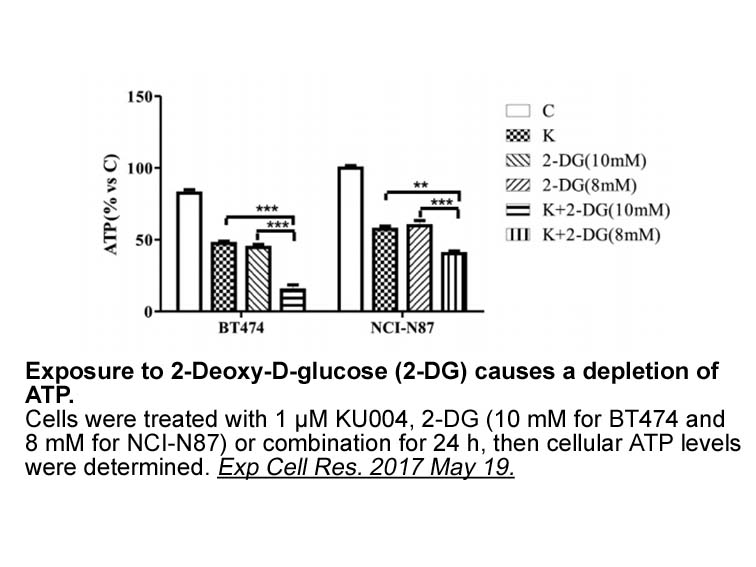Archives
The present study has several limitations First the results
The present study has several limitations. First, the results were obtained using RAW264.7 cells, which are derived from BALB/c mice infected with the Abelson leukemia virus (Raschke et al., 1978). However, these cells, which are a commonly used mouse macrophage cell line, show properties similar to primary murine macrophages with regard to phagocytosis (Jay et al., 2010, Thoma-Uszynski et al., 2001, Wells et al., 2008). Second, we did not investigate the impact of MafB on the other TAM receptors, Tyro3 and MerTK. As described above, both Tyro3 and MerTK are important receptor tyrosine kinases; however, Axl solely controls efferocytosis (Seitz et al., 2007, Fujimori et al., 2015, Zagorska et al., 2014). In the present study, Axl expression was found to be remarkably suppressed in RAW264.7-MafB-shRNA cells. The observed rescue of efferocytosis by transient expression of Axl strongly suggested that MafB plays an important role in efferocytosis by regulating Axl expression. Third, we did not exa mine the association between MafB and the Rho GTPases that control the cytoskeleton. We have previously reported that RhoA GTPase activity was suppressed in alveolar macrophages from dominant-negative-MafB transgenic mice in which MafB activity was inhibited (Aida et al., 2014). Activation of RhoA has been reported to suppress the phagocytosis of apoptotic Oxytocin by macrophages (Richens et al., 2009). In this study, protein levels of RhoA and phosphorylated RhoA during efferocytosis were significantly higher in RAW264.7-MafB-shRNA cells than control cells. Finally, we were unable to identify the direct mechanism by which MafB controls the expression of Axl. In the future, experiments such as Axl promoter assays may be necessary to confirm whether MafB activates Axl expression.
mine the association between MafB and the Rho GTPases that control the cytoskeleton. We have previously reported that RhoA GTPase activity was suppressed in alveolar macrophages from dominant-negative-MafB transgenic mice in which MafB activity was inhibited (Aida et al., 2014). Activation of RhoA has been reported to suppress the phagocytosis of apoptotic Oxytocin by macrophages (Richens et al., 2009). In this study, protein levels of RhoA and phosphorylated RhoA during efferocytosis were significantly higher in RAW264.7-MafB-shRNA cells than control cells. Finally, we were unable to identify the direct mechanism by which MafB controls the expression of Axl. In the future, experiments such as Axl promoter assays may be necessary to confirm whether MafB activates Axl expression.
Conflict of interest
Acknowledgments
This work was supported by Grants from the Japan Society for the Promotion of Science (23390220, 26461498, 26461177, and 26461153). The authors thank Emiko Nishidate, Hiroko Sasaki, Yuki Miyano, Junko Higuchi, and Eiji Tsuchida for their invaluable technical assistance.
Introduction
Immunotherapy has become a novel therapeutic strategy for cancer treatment. Among various immunotherapies, checkpoint inhibitors and adoptive cell transfer (ACT) therapy, including chimeric antigen receptor (CAR)-T cells, are considered the most promising. CAR-T cells specific for the B lymphocyte antigen CD19 have achieved remarkable success in treating hematological malignancies, including leukemia and lymphoma [1], [2], [3], [4], [5]. Recently, two CD19 CAR-T cell therapies have been approved for use in the United States of America, but the therapeutic effects of CAR-T cells against solid tumors have not yet shown significant clinical benefits. Therefore, the identification of novel therapeutic targets is still a challenge facing CAR-T cell therapy research, especially for the treatment of solid tumors.
AXL is a receptor tyrosine kinase (RTK) that was first identified in chronic myelogenous leukemia patients. Along with two other kinases, Tyros and MER, AXL belongs to the TAM (Tyros, AXL, MER) family of RTKs [6]. The binding of AXL by its ligand, growth arrest-specific protein 6 (GAS6), induces dimerization and autophosphorylation of the AXL protein [7], [8], [9] and leads to activation of downstream signaling pathways, such as the AKT, MAPK, PI3K, mTOR, and NFκB pathways. AXL/GAS6 has been implicated in tumor pathology via its role in fundamental cellular processes, including proliferation, apoptosis, survival, migration, inflammation, and angiogenesis [10], [11], [12], [13], [14], [15]. AXL was found to be aberrantly overexpressed in aggressive and metastatic tumors and related to poor patient survival [16], [17], [18], [19], [20]. In addition, AXL overexpression was shown to contribute to therapeutic resistance of a variety of cancers, such as acute myeloid leukemia (AML) [21], breast cancer [22], renal cell carcinoma (RCC) [23], [24], esophageal carcinoma [21], lung cancer [25], and pancreatic cancer [24], [26]. Thus, AXL has emerged as a therapeutic target for cancer treatment [27], [28], and inhibition of the AXL/GAS6 cascade with specific inhibitors or antibodies can be a promising strategy for tumor therapy. XL184 (Cabozantinib), a multi-kinase inhibitor that inhibits AXL activity, is currently in Phase II and III clinical trials for treatment of non-small cell lung cancer (NSCLC) and brain and medullary thyroid cancer [29]. R428 (BGB324), a unique small-molecule inhibitor of AXL that inhibits its autophosphorylation and activation of the downstream AKT pathway [30], [31], was granted the Orphan Drug Designation for acute myeloid leukemia in the United States of America. The therapeutic advances targeting AXL strongly recommend it as an ideal target for cancer therapy. However, CAR-T cell therapy targeting AXL in solid tumors has not been investigated. In this study, we generated a CAR-T cell-specific antigen targeting AXL using a single-chain variable fragment (scFv) of a novel AXL antibody and evaluated its anti-tumor effect on AXL-positive tumors both in vitro and in vivo. This work provides a foundation for future clinical studies using AXL-CAR-T cell therapy for the treatment of AXL-positive tumors.